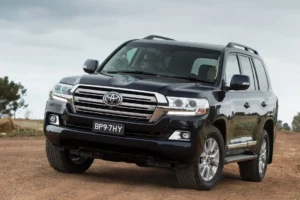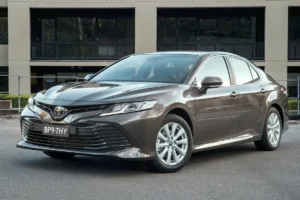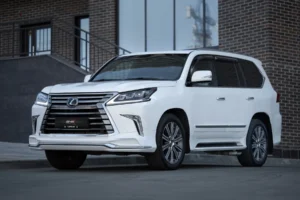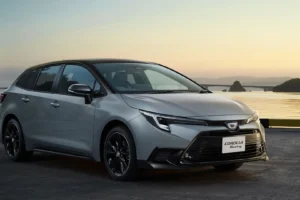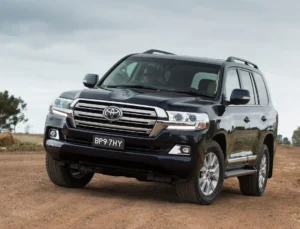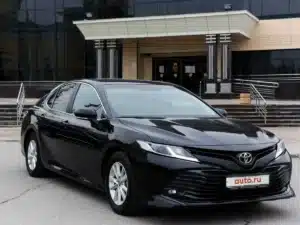Table of Contents
Gone are the days when second hand cars were seen as a last resort. In today’s Saudi Arabia, they represent a rising wave of smart, informed choices. With living costs shifting and consumers becoming more value-driven, pre-owned vehicles have become the go-to solution for those who want quality without overpaying.
Whether you’re navigating city streets in Riyadh, launching your first business in Jeddah, or simply looking for a dependable ride, second hand cars in Saudi Arabia offer the perfect blend of savings, reliability, and convenience, all tailored to fit your lifestyle.
Used vs. New: The Real Cost Comparison
At first glance, buying a brand-new car might seem like the ideal choice—shiny paint, untouched mileage, and that irresistible new car smell. But when you take a closer look at the numbers, second hand cars in Saudi Arabia often emerge as the smarter long-term investment. Here’s why:
Initial Purchase Price
New cars come with premium price tags. Once you add options, registration, and VAT, the cost can skyrocket. On the other hand, second hand vehicles are typically priced 30% to 40% lower than their brand-new counterparts, even if they’re only a year or two old. This means you can get a higher trim level or a more premium model for the same budget.
Depreciation
The moment a new car is driven off the dealership lot, it loses value—instantly. Within the first year, most new cars depreciate by around 20%, and by the third year, they may have lost 40–50% of their original value. Used cars have already gone through this steep decline, so their depreciation is slower and less dramatic, making them a better option for preserving resale value.
Insurance and VAT
Insurance premiums are generally higher on new cars because of their higher replacement cost. Additionally, in Saudi Arabia, VAT applies to the full purchase price—so buying a more expensive new car means paying significantly more in tax. Used cars, with their lower value, translate to lower insurance rates and VAT burdens.
Maintenance and Ownership Costs
Contrary to popular belief, modern used cars—especially those that are 2 to 5 years old—can be just as reliable as new ones. Many come with detailed service histories, and some are still under manufacturer warranty. Plus, older models may cost less in routine maintenance and parts, thanks to better availability and simpler technology.
The Bottom Line
When you factor in purchase price, depreciation, taxes, and ongoing costs, it becomes clear: over a 3 to 5-year period, many second hand cars in Saudi Arabia offer superior overall value compared to brand-new vehicles. You’re not just saving money up front—you’re minimizing long-term expenses while maximizing your buying power.

How to Choose the Right Second Hand Car for You
Finding the perfect second hand car isn’t just about spotting a good deal—it’s about making sure the vehicle truly fits your life, your needs, and your budget. In the bustling Saudi market, where choices are plenty and conditions vary from city driving to desert terrain, making the right choice requires thoughtful consideration.
Here’s a step-by-step guide to help you narrow down your options with confidence:
1. Define Your Full Budget (Beyond the Price Tag)
Most people focus only on the car’s sale price—but owning a car includes more than just the sticker cost. Ask yourself:
- Can I afford registration fees, insurance, and yearly maintenance?
- Do I need to factor in installment payments or interest rates?
- What’s the fuel economy like for the model I’m considering?
Setting a realistic total ownership budget will prevent unpleasant surprises down the road.
2. Match the Car to Your Lifestyle
Not every car fits every routine. Think about your daily life and ask:
- Do you mainly drive in the city or on highways? Compact sedans like a Hyundai Elantra may suit city life.
- Do you need extra space for kids or cargo? SUVs like a Honda CR-V or Kia Sportage are ideal.
- Will you be driving on rough roads or desert areas? Consider a sturdy pickup like a Toyota Hilux with high ground clearance.
Your driving habits should be the foundation of your search.
3. Research Brand Reliability in the Saudi Climate
Some cars perform better than others in Saudi Arabia’s hot and sandy conditions. Before buying, check:
- Is the engine known for handling high temperatures well?
- Does the brand have a good track record of durability locally?
- Are cooling systems and AC performance strong enough for long summers?
Popular brands like Toyota and Nissan have earned trust for a reason—don’t ignore regional experience.
4. Check Availability of Spare Parts and Service Centers
Even the best cars need occasional maintenance. Make sure:
- The model you choose has affordable spare parts available locally
- Authorized service centers or reliable workshops exist in your city
- The model is common enough that repairs won’t become a logistical headache
This factor alone can significantly impact long-term satisfaction.
5. Make a Prioritized List of Your Needs
Write down:
- Your non-negotiables (fuel economy, safety features, trunk space)
- Your preferred extras (sunroof, touchscreen, leather seats)
This will keep you focused when comparing listings and prevent emotional decisions during test drives.
How to Inspect and Buy a Second Hand Car
Purchasing a second hand car isn’t just about choosing a model and agreeing on a price—it’s a process with several critical steps that ensure your purchase is legal, safe, and worth every riyal. Here’s a detailed guide to how the process works in Saudi Arabia:
1. Vehicle Inspection:
Before anything else, you need to inspect the car thoroughly and that means more than just checking if it looks clean.
- Mechanical Check:
Hire a certified mechanic to evaluate the engine, transmission, brakes, and suspension. - Visual & Structural Check:
Look for signs of repainting, rust, or frame damage that could indicate past accidents. Examine the tires, lights, glass, and dashboard electronics. - Test Drive:
Always test drive the car in different conditions (city roads, highways, bumps). Listen for unusual noises, feel how it handles, and make sure all warning lights are off.
2. Vehicle History Report:
Ask for a full report using tools. A reliable history report includes:
- Number of previous owners.
- Accident and repair history.
- Service and maintenance records.
- Mileage verification.
- Any legal or financial encumbrances (like unpaid loans or traffic fines)
3. Ownership Transfer:
Once you’re satisfied with the car’s condition, it’s time to make the sale official.
- The Absher platform is the government’s approved portal for ownership transfers. Both the buyer and seller must have Absher accounts and meet in person (or use authorized service centers).
- Required documents include:
- Valid ID or Iqama
- Vehicle registration (Istimara)
- Insurance policy in your name
- Payment confirmation
Make sure no traffic violations or unpaid fees are tied to the car before proceeding.
4. Registration and Insurance:
After transferring ownership, you’ll need to:
- Register the car in your name (done digitally via Absher or at Moroor offices)
- Purchase mandatory insurance (at minimum: third-party liability)
- Optional: Get comprehensive insurance for newer or high-value vehicles
Without these two steps, you’re not legally allowed to drive the vehicle.
In the end, when it comes to buying second hand cars in Saudi Arabia, you’re not just searching for a bargain you’re seeking quality you can trust, performance you can rely on, and safety that gives you peace of mind. That’s exactly what we offer at Soum.
With a wide range of carefully inspected second hand cars in Saudi Arabia, transparent listings, and reliable nationwide delivery, Soum makes it easy to find the right car for your needs wherever you are in the Kingdom.
Explore our platform today and drive home a vehicle that delivers on value, reliability, and confidence all at the right price.

FAQs
1. Are second hand cars in Saudi Arabia reliable?
Yes, especially when purchased through trusted platforms like Soum. Most used cars go through inspections and come with full maintenance records. Models from brands like Toyota, Honda, and Hyundai are particularly known for their long-term reliability in Saudi conditions.
2. Is financing available for used cars?
Yes. Many buyers now choose to finance second hand cars in Saudi Arabia through banks or platforms, which often provide flexible installment plans.
3. How can I verify the condition of a used car before buying?
- Get a mechanical inspection from a certified garage.
- Request a vehicle history report.
- Always take the car for a test drive.
4. Which brands are most popular in the second-hand market?
Among the most in-demand second hand cars in Saudi Arabia are:
- Toyota Camry & Hilux
- Honda Accord & CR-V
- Hyundai Elantra & Sonata
- Kia Sportage
- Nissan Altima
5. Do I need to register and insure the car myself after purchase?
Yes. After the ownership is transferred (typically via Absher), the buyer is responsible for registering the car in their name and getting insurance before driving it legally on Saudi roads.



